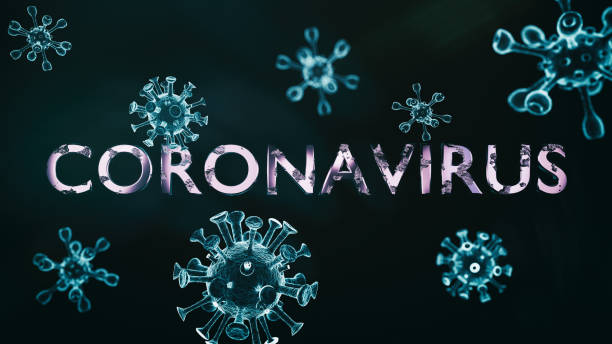Title: The Essential Guide to Coronavirus Booster Shots: Advancing Protection and Mitigating Pandemic Challenges
Introduction:
As the battle against the ongoing COVID-19 pandemic continues, scientists, healthcare professionals, and policymakers are closely monitoring the progression of the virus and its variants. In response to the evolving situation, the concept of a "coronavirus booster shot" has emerged as a potential tool to bolster immunity, extend vaccine efficacy, and curb the spread of the virus. This comprehensive guide delves into the significance, science, and potential impact of coronavirus booster shots, shedding light on their role in mitigating the challenges posed by the pandemic.
The Evolution of Immunity:
COVID-19 vaccines have been instrumental in providing protection against severe illness and hospitalization. However, as the virus mutates and new variants emerge, questions arise regarding the longevity of vaccine-induced immunity. Booster shots, also known as third doses, are designed to strengthen the immune response by reinforcing the body's defense mechanisms against the virus. These shots are not new to medicine; they have been used for other diseases like influenza and tetanus to enhance immune memory and maintain protection.
The Science Behind Boosters:
Coronavirus booster shots work by re-stimulating the immune system's memory cells. These cells, including B cells and T cells, remember the virus from the initial vaccine series and respond more rapidly and effectively when encountering the virus again. Boosters can either be identical to the original vaccine or modified to target new variants. By introducing a booster dose, the immune system receives a "refresher" course, resulting in increased production of antibodies and a stronger defense against the virus.
Efficacy and Protection:
Research indicates that while the initial vaccine series provides robust protection, immunity may wane over time. Booster shots aim to address this decline by elevating antibody levels and enhancing the immune response. Studies have shown that booster doses significantly increase neutralizing antibody titers, especially against emerging variants. This heightened immune response not only reduces the risk of infection but also minimizes the severity of disease among breakthrough cases.
Targeting Variants:
The coronavirus's ability to mutate has given rise to new variants with altered characteristics. Some variants exhibit increased transmissibility, immune escape, or resistance to neutralization by existing antibodies. Booster shots can be tailored to target specific variants, using updated vaccine formulations that incorporate genetic information from these variants. This approach ensures that the immune system is well-equipped to recognize and counteract the latest viral strains.
Global Considerations:
While booster shots hold promise in enhancing immunity, global access remains a critical concern. Disparities in vaccine distribution have led to unequal protection levels, with many low- and middle-income countries struggling to vaccinate their populations. The ethical dilemma of administering booster shots in well-vaccinated regions while a significant portion of the world remains unvaccinated calls for a balance between internal and global health priorities.
Combating Vaccine Hesitancy:
Boosters also serve as an opportunity to address vaccine hesitancy and misinformation. As vaccines receive updates to accommodate variants, individuals who were initially hesitant may reconsider their stance, recognizing the adaptability of vaccine science and its alignment with evolving virus strains. Clear communication about the rationale, safety, and benefits of booster shots is essential in fostering public trust and participation.
Navigating Regulatory Landscape:
Regulatory agencies play a pivotal role in determining the authorization and recommendation of booster shots. They assess clinical trial data, real-world effectiveness, and safety profiles before granting approval. The decision to administer boosters may vary based on factors such as age, risk factors, and time since the initial vaccination. Regular communication between regulatory bodies, public health officials, and the medical community ensures evidence-based decisions.
Conclusion:
Coronavirus booster shots have emerged as a crucial tool in the ongoing fight against the pandemic. With their ability to reinforce immunity, target variants, and extend vaccine efficacy, they offer a pathway to overcome the challenges posed by a rapidly evolving virus. However, their implementation requires a delicate balance between individual and global health priorities. As the scientific community continues to monitor the virus and adapt vaccination strategies, booster shots represent a testament to human resilience and innovation in the face of adversity. Through widespread access, informed decision-making, and international collaboration, we can move closer to a world where the threat of COVID-19 is managed effectively, and societies can regain a sense of normalcy.
Introduction:
As the battle against the ongoing COVID-19 pandemic continues, scientists, healthcare professionals, and policymakers are closely monitoring the progression of the virus and its variants. In response to the evolving situation, the concept of a "coronavirus booster shot" has emerged as a potential tool to bolster immunity, extend vaccine efficacy, and curb the spread of the virus. This comprehensive guide delves into the significance, science, and potential impact of coronavirus booster shots, shedding light on their role in mitigating the challenges posed by the pandemic.
The Evolution of Immunity:
COVID-19 vaccines have been instrumental in providing protection against severe illness and hospitalization. However, as the virus mutates and new variants emerge, questions arise regarding the longevity of vaccine-induced immunity. Booster shots, also known as third doses, are designed to strengthen the immune response by reinforcing the body's defense mechanisms against the virus. These shots are not new to medicine; they have been used for other diseases like influenza and tetanus to enhance immune memory and maintain protection.
The Science Behind Boosters:
Coronavirus booster shots work by re-stimulating the immune system's memory cells. These cells, including B cells and T cells, remember the virus from the initial vaccine series and respond more rapidly and effectively when encountering the virus again. Boosters can either be identical to the original vaccine or modified to target new variants. By introducing a booster dose, the immune system receives a "refresher" course, resulting in increased production of antibodies and a stronger defense against the virus.
Efficacy and Protection:
Research indicates that while the initial vaccine series provides robust protection, immunity may wane over time. Booster shots aim to address this decline by elevating antibody levels and enhancing the immune response. Studies have shown that booster doses significantly increase neutralizing antibody titers, especially against emerging variants. This heightened immune response not only reduces the risk of infection but also minimizes the severity of disease among breakthrough cases.
Targeting Variants:
The coronavirus's ability to mutate has given rise to new variants with altered characteristics. Some variants exhibit increased transmissibility, immune escape, or resistance to neutralization by existing antibodies. Booster shots can be tailored to target specific variants, using updated vaccine formulations that incorporate genetic information from these variants. This approach ensures that the immune system is well-equipped to recognize and counteract the latest viral strains.
Global Considerations:
While booster shots hold promise in enhancing immunity, global access remains a critical concern. Disparities in vaccine distribution have led to unequal protection levels, with many low- and middle-income countries struggling to vaccinate their populations. The ethical dilemma of administering booster shots in well-vaccinated regions while a significant portion of the world remains unvaccinated calls for a balance between internal and global health priorities.
Combating Vaccine Hesitancy:
Boosters also serve as an opportunity to address vaccine hesitancy and misinformation. As vaccines receive updates to accommodate variants, individuals who were initially hesitant may reconsider their stance, recognizing the adaptability of vaccine science and its alignment with evolving virus strains. Clear communication about the rationale, safety, and benefits of booster shots is essential in fostering public trust and participation.
Navigating Regulatory Landscape:
Regulatory agencies play a pivotal role in determining the authorization and recommendation of booster shots. They assess clinical trial data, real-world effectiveness, and safety profiles before granting approval. The decision to administer boosters may vary based on factors such as age, risk factors, and time since the initial vaccination. Regular communication between regulatory bodies, public health officials, and the medical community ensures evidence-based decisions.
Conclusion:
Coronavirus booster shots have emerged as a crucial tool in the ongoing fight against the pandemic. With their ability to reinforce immunity, target variants, and extend vaccine efficacy, they offer a pathway to overcome the challenges posed by a rapidly evolving virus. However, their implementation requires a delicate balance between individual and global health priorities. As the scientific community continues to monitor the virus and adapt vaccination strategies, booster shots represent a testament to human resilience and innovation in the face of adversity. Through widespread access, informed decision-making, and international collaboration, we can move closer to a world where the threat of COVID-19 is managed effectively, and societies can regain a sense of normalcy.




